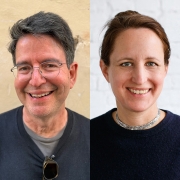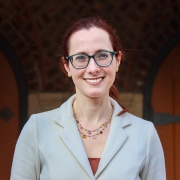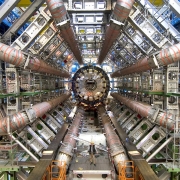NIH Prize Links Liberal Arts and Brain Trauma
One doesn’t usually connect liberal arts graduate students with neuroscience research, but now Penn has.
Two Master of Liberal Arts students from Penn’s College of Liberal and Professional Studies were winners in the National Institute of Health’s (NIH) Neuro Startup Challenge. The NIH developed the challenge to attract students to create launch campaigns for its unlicensed technologies, all of which treat brain-related illnesses.
Krystle Karoscik and Medha Sengupta, who will earn their Penn graduate degrees in August, are now working to market a device that simulates a blast-induced traumatic brain injury (TBI), offering hope for the future diagnosis and treatment of TBIs. This new technology is unique because of its ability to examine and record—on a cellular level—what occurs when brain cells are exposed to a blast from an explosive device.
Because the device allows them to adjust and record a blast’s effect in real time, they can track and compare any cellular changes. “It is very difficult to diagnose a TBI,” Karoscik says. “Without a proper diagnosis, it is challenging to provide an effective treatment to the injured individual.” Sengupta adds, “Because we’re able to record what’s happening on a cellular level, we will have more data to share with the physicians treating TBI patients.”
The two entrepreneurs met in January 2013 while working at the Clinical Cell and Vaccine Production Facility at Penn Medicine and began their Master of Liberal Arts programs in 2014. Karoscik’s concentration is neurosciences and bioethics. She currently works at The Children’s Hospital of Philadelphia as a project manager in the Department of Neurology and oversees the initiation and maintenance of research studies for pediatric demyelinating diseases. She plans to apply to Penn to earn her Ph.D., matriculating in 2016. Sengupta’s concentration is in neurobiology and public health. She works at Penn’s School of Medicine as a clinical coordinator, overseeing the quality assurance of clinical trials for cancer. They have named their company Amavii, which comes from the Italian and Latin words for love and compassion. They are working to incorporate the business and apply for licensing.
Click here Neuro Startup Challenge to learn more about the Neuro Startup Challenge.





